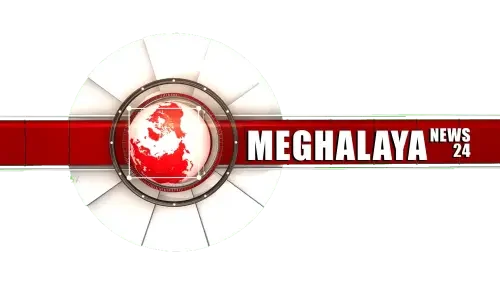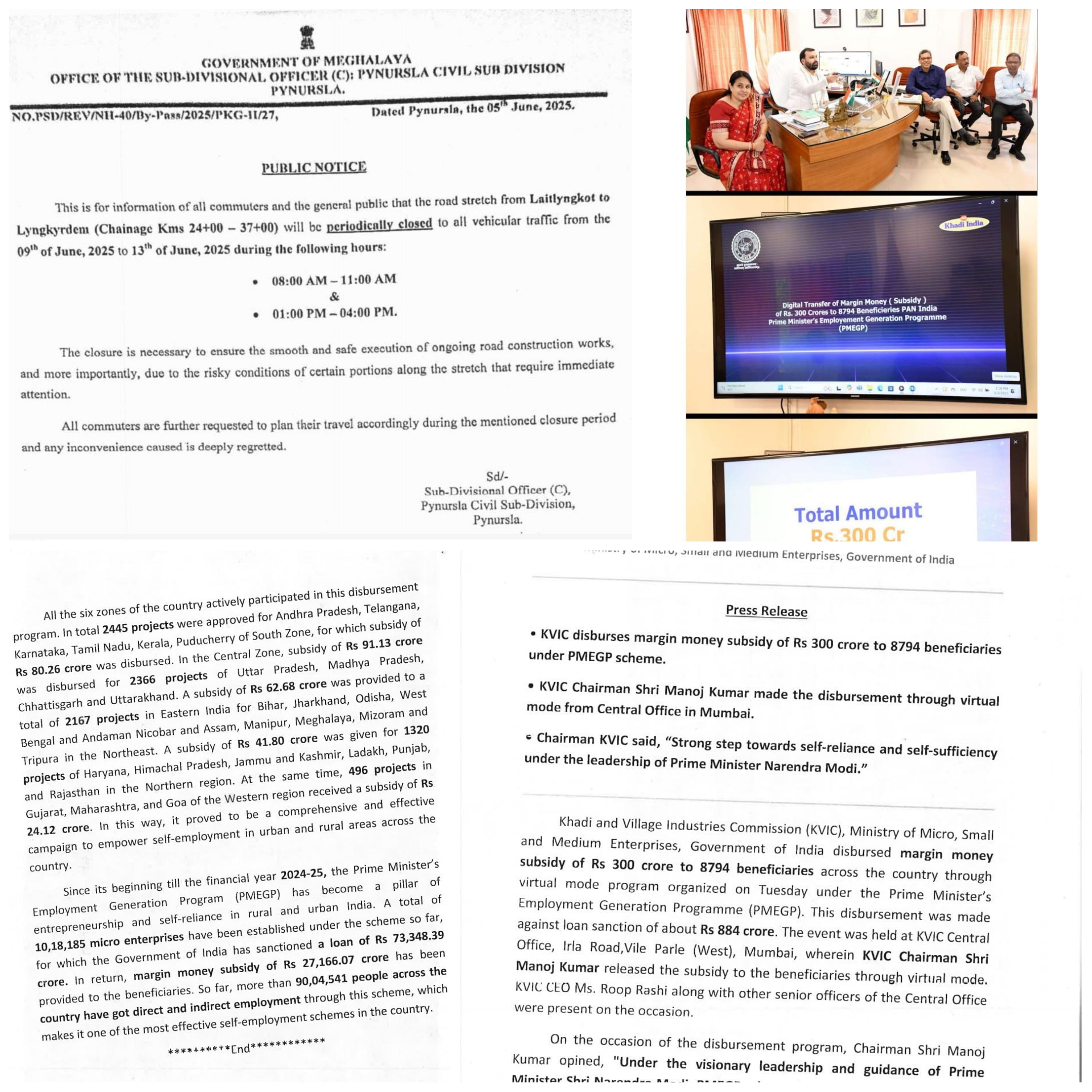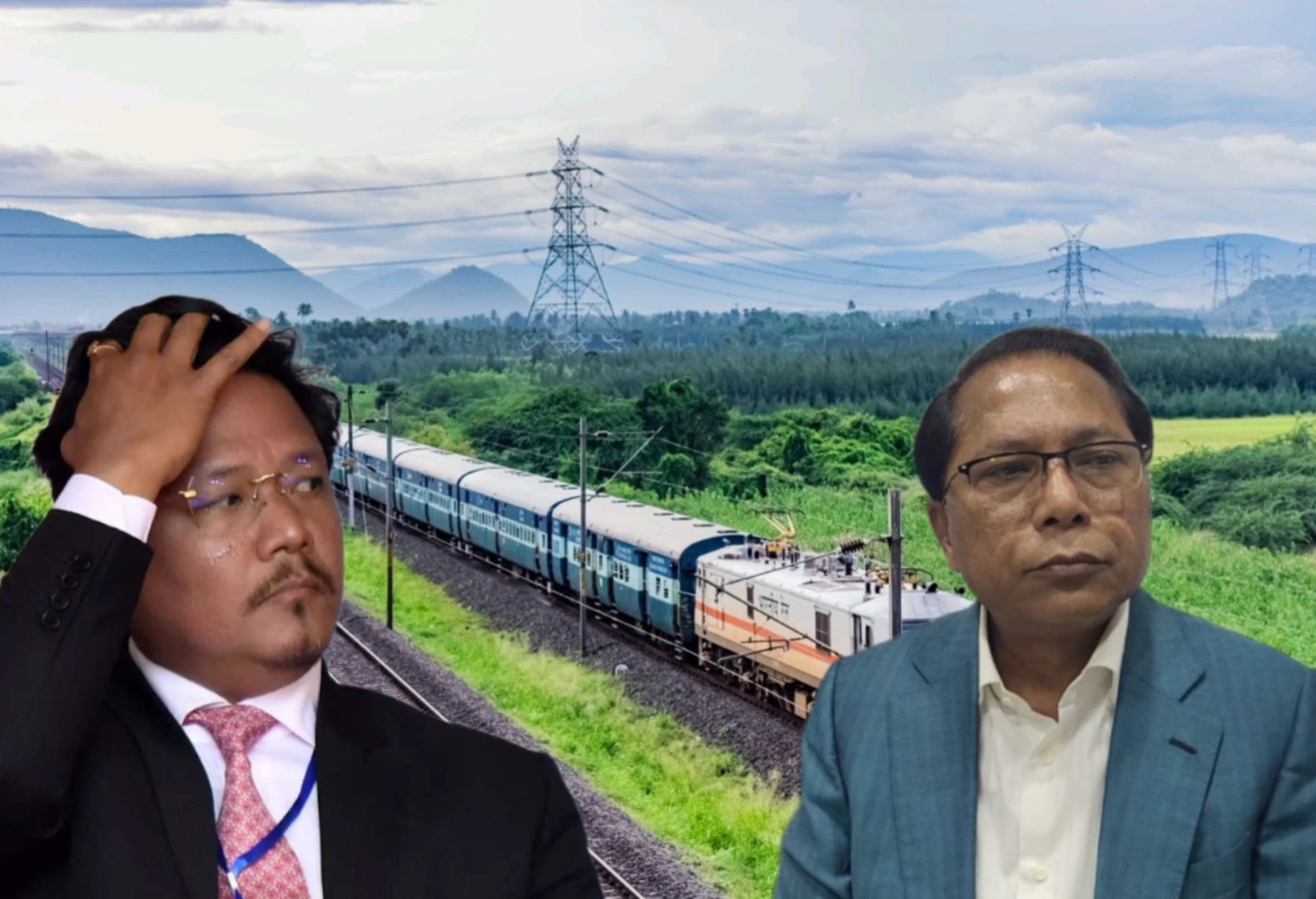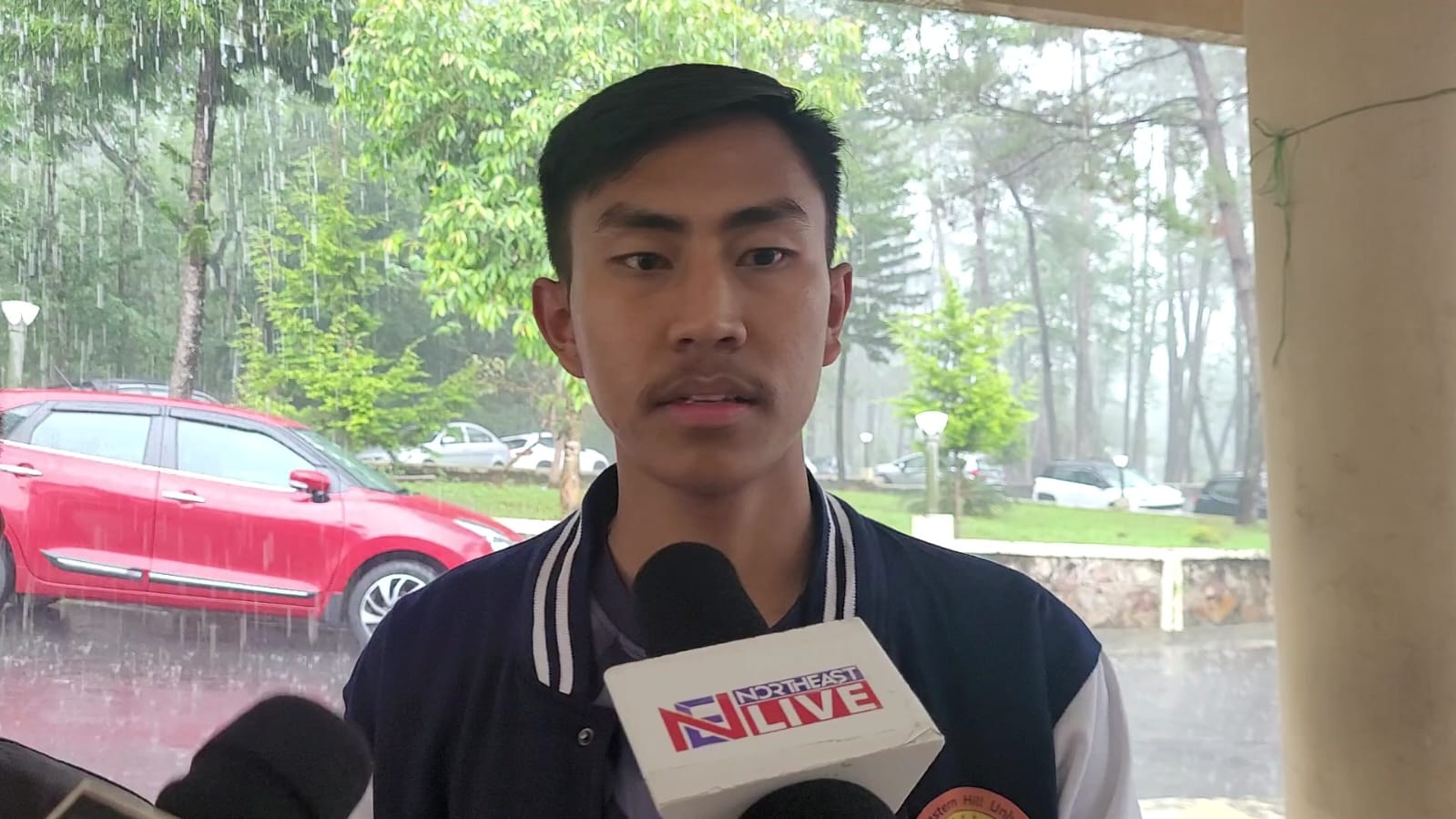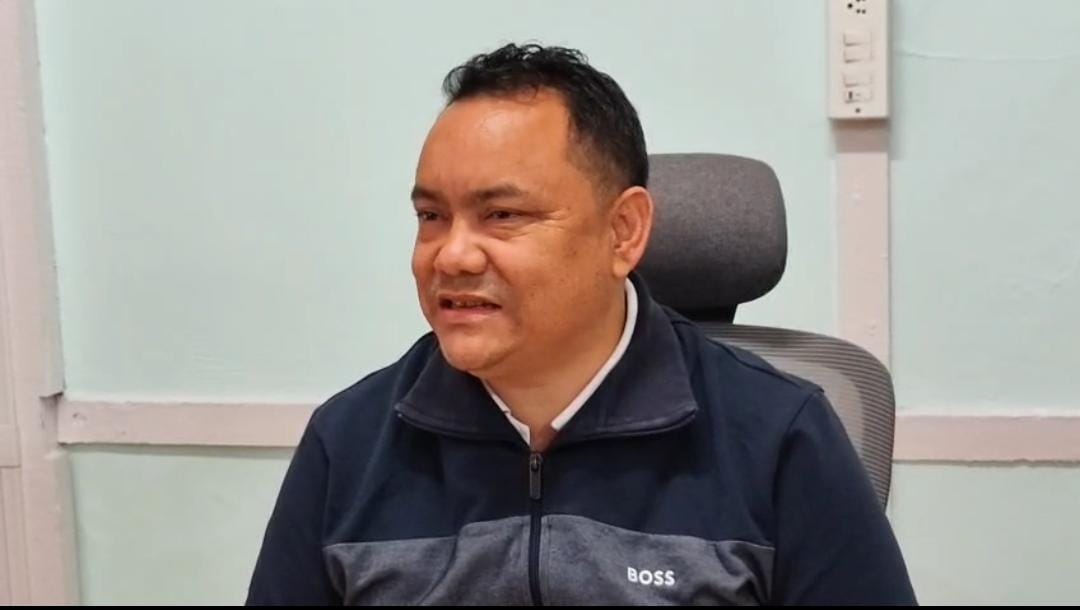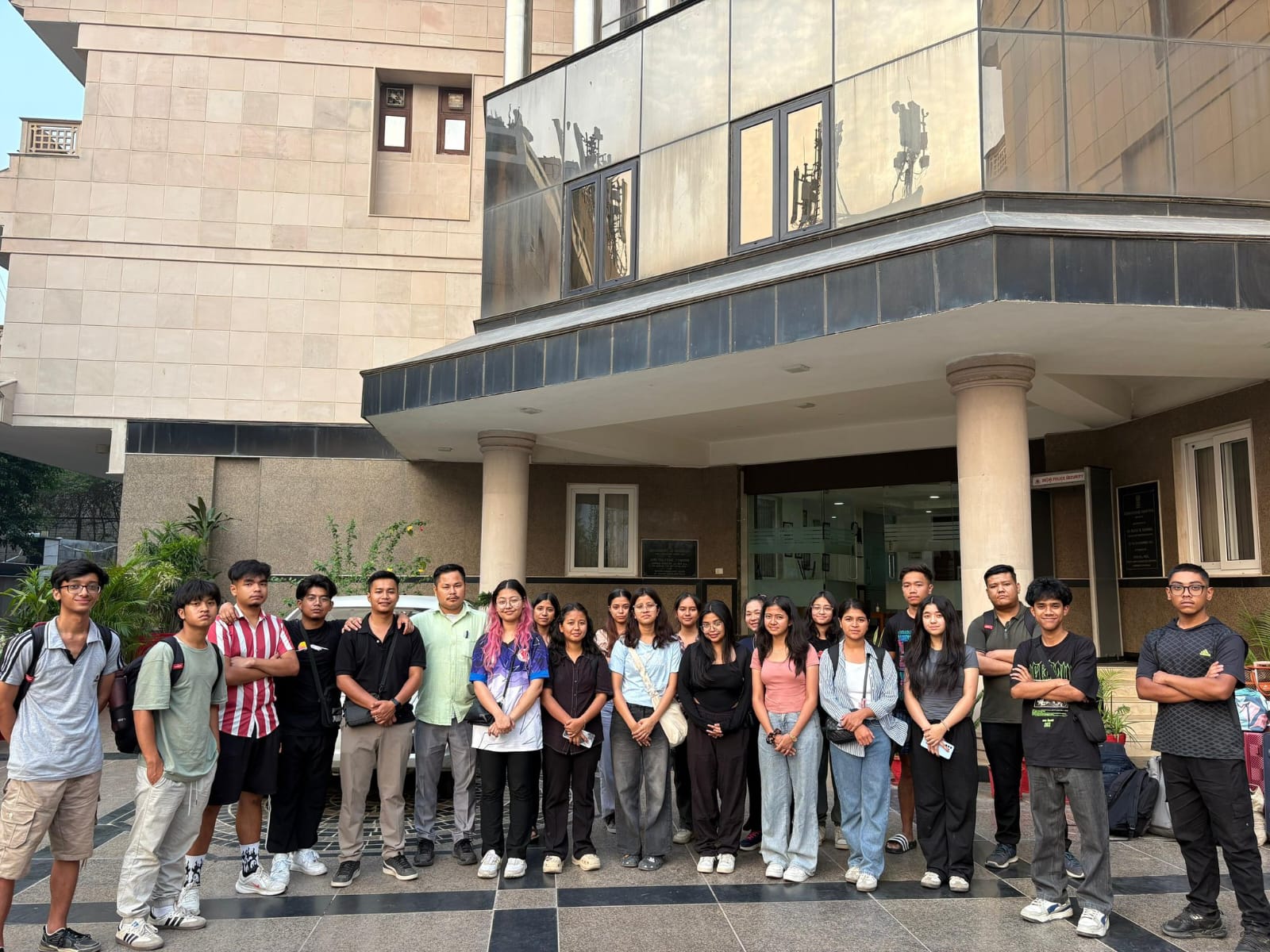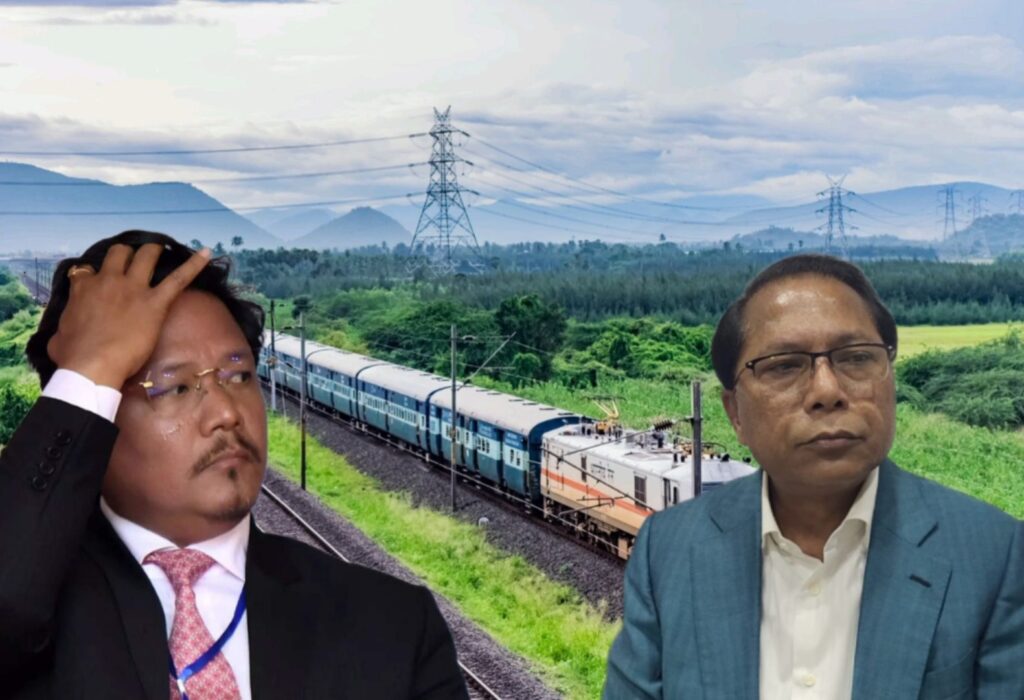
With key opposition parties like the Voice of the People’s Party (VPP) and the Congress choosing to stay out of the All-Party Committee on Railways constituted by the Meghalaya government, the focus now shifts to the All India Trinamool Congress (AITC). Will Meghalaya’s principal opposition party also opt out? Leader of Opposition and former Chief Minister Dr. Mukul Sangma has raised critical concerns regarding the government’s approach in forming the committee, hinting that the AITC’s participation remains uncertain.
“I am telling you the approach has to be correct. Has the government known the minds of the parties? Have I also known the minds of the parties? We have to have certain kind of discussion at the political party level first. That is what I’m saying—before you discuss in a platform which will obviously have all the stakeholders, which is the ultimate platform we are looking at,” Dr. Sangma said.
He questioned the intent behind the formation of the committee, stating, “The intent of the committee is what? The intent of the committee is to explore the possibility of ending the deadlock, if need be—or to put as it is, as-is-where-is basis. I am keenly observing this whole development. How you do things is very important. You can do things, but how you do is very important. Maybe how they [the government] do is the reason why they [opposition parties] are de-linking themselves. I am being simple in my expression, but I’m being blunt… the approach.”
Referring to widespread opposition from civil society organisations regarding railway construction and expansion in the state, he said, “Is it not a fact that all these different civil society organisations are opposing the construction of railway because of reasons which have been already highlighted and flagged before the government? It is. Therefore, the whole discussion must be designed in such a way—and the overall approach must be discussed with the political parties. You cannot directly call everybody and make us a part of that discussion.”
Dr. Sangma criticised the government’s outreach, saying, “What is preventing the government from calling the leaders of these political parties first and discussing? But they have chosen to send letters—‘send a nominee.’ They will go and discuss. What? What are the parameters? What are those areas of concern? How will be the approach? Now, political parties cannot be there in a discussion with civil society organisations when you don’t have complete clarity on the approach of the government itself.”
Calling for more thoughtful and inclusive planning, he added, “Therefore, friends, it is necessary for us to really understand the need for discussion at different levels with different people. Then try to understand—maybe some advice will come from many of us. I think the approach should be this. I think the areas of concern are this. So maybe if these areas of concern are dealt with, and how we deal with those concerns—so, you know, this is how it should be done.”
Dr. Sangma recalled his earlier suggestion to the government inside the Assembly. “I suggested the government in the Assembly that utilise the services of all who are available. We are equally responsible for the name and fame of the state. We are equally responsible for the progress and prosperity of the state.”
He noted that civil society organisations are not inherently against development, but stressed the presence of preconditions. “What does the civil society organisation say? They say that they are not against any developmental initiatives—but there’s a rider. So, what are those riders? Have we not been confronted by those riders? I have been confronted, we have faced it. But these riders are there—and the magnitude of concern—it’s a question of trust and lack of it. So, I have reasons to believe that the whole civil society organisation today does not have trust in the government. Yes, it is not presumption. It is my conclusion based on my own analysis.”
Returning to the core issue, he reiterated, “If civil society organisations are opposing the construction or extension of railway lines, then there are reasons for us to know the riders, which is the pronouncement of their stand, where they have announced that they are not against developmental initiative. That means what? They are not against construction of railway line—but there’s a rider. Now, how do you really somehow deal with this rider and come to a kind of situation where we can somehow find an end result, which ultimately allows us to see that the so-called mess—we are able to get out of the mess. Today is a mess.”
